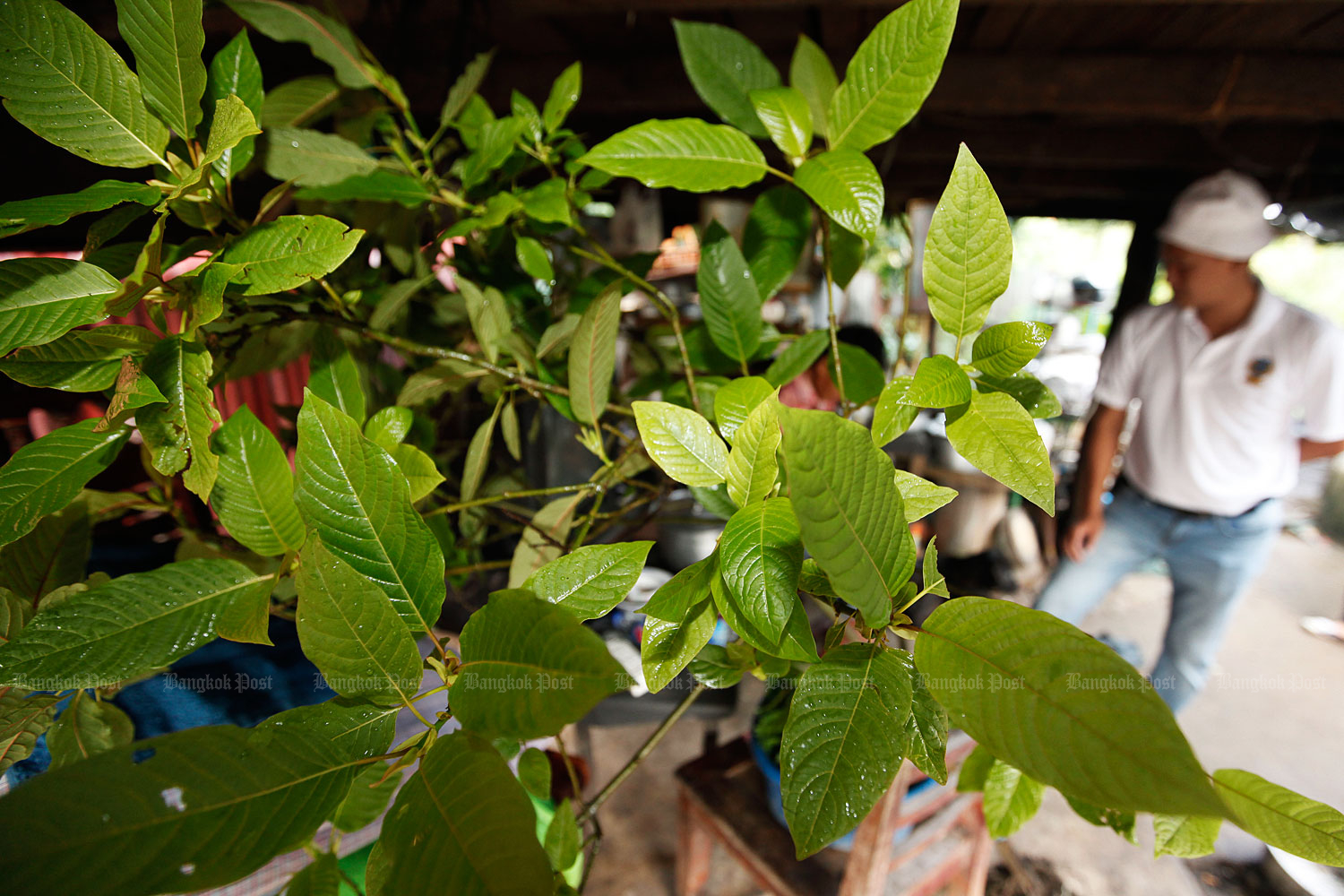
Justice Minister Somsak Thepsutin has vowed to expedite legalising kratom, a local plant classified as a narcotic after researchers registered patents for kratom-based medicine in Japan and America.
"I will proceed with this project as soon as possible because this [legalising kratom] will truly benefit society," said the justice minister.
He said a medical research team of Thai and Japanese researchers had already registered four patents -- two in Japan and others in the US.
Mr Somsak yesterday said the ministry had formed a committee to consider the legalisation of kratom-based medicines.
He cited research where kratom has been used as a traditional medicine to treat some illness such as pain, fever, dysentery and diarrhoea.
Kratom is not classified as a narcotic drug by the United Nations and kratom-derived products can be freely imported and exported in many countries except Thailand where it has been treated as a narcotic, he said.
With the scientific name Mitragyna speciosa, kratom is a tropical evergreen tree belonging to a coffee family native to Southeast Asia. However, it has been classified as a narcotic for seven decades.
In Thailand, Kratom is a Type-5 narcotic and selling it can lead to a jail term of up to two years and/or a fine of between 40,000 and 200,000 baht.
Possession can result a jail term of up to one year and/or a 2,000 baht fine.
The plant has been popular among villagers in the South who chew kratom as a stimulant.
Over the past years, kratom has also been used as an ingredient in recreational drugs known as 4 by 100.
